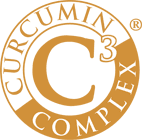Sabinsa’s Curcumin C3 Complex® Identified as the Most Studied
A retrospective analysis of curcumin research presented a comprehensive look at the vast body of science on the popular extract of turmeric. Curcumin: Total-Scale Analysis of the Scientific Literature by Dr. Atanas G. Atanasov et al, a bibliometric review of literature on curcumin published in the April 2019 edition of the journal, Molecules (2019, 24, 1393), discussed investigations into a range of clinical indications, including Alzheimer’s disease, psoriasis vulgaris, obesity, oral lichen planus, osteoarthritis, inflammation associated with metabolic syndrome, and radiation dermatitis as well as for modulation of human gut microbiome.
The research also identified Sabinsa’s Curcumin C3 Complex® as the most clinically studied curcumin brand. To quote the authors “By analyzing the studies describing clinical trial studies of curcumin, we found that oral curcumin (C3 complex) was a popular theme. Indeed, the C3 complex used in these studies is a standardized extract of dried rhizomes of C. longa and it represents the most clinically studied form of curcumin, evaluated in clinical trials in the context of cancer, but also in multiple other conditions, including Alzheimer’s disease, psoriasis vulgaris, oral lichen planus, osteoarthritis, inflammation associated with metabolic syndrome and obesity, radiation dermatitis, as well as for modulation of human gut microbiome.”

The study undertook to provide a comprehensive bibliometric overview of published research on curcumin, complementing the previous reviews and meta-analyses on its potential health benefits. The initial search returned 18,036 manuscripts with more than half published since 2014. The major contributing countries were the United States, China, India, Japan, and South Korea, with the journals representing the scientific disciplines of biochemistry, chemistry, oncology, and pharmacology. Much of the literature focused on curcumin’s effects against cancer, inflammation, and oxidative stress, with breast, colon, colorectal, pancreatic, and prostate cancers the most frequently studied types.
“We’re proud that this comprehensive analysis cites Sabinsa’s Curcumin C3 Complex as the most clinically studied form of curcumin for so many conditions,” said Sabinsa founder Dr. Muhammed Majeed. “Deliverability of the gold standard in curcumin is something we know very well and will continue to promote for future clinical studies.”
The article is available under open access and can be downloaded from https://www.mdpi.com/1420-3049/24/7/1393/htm.








